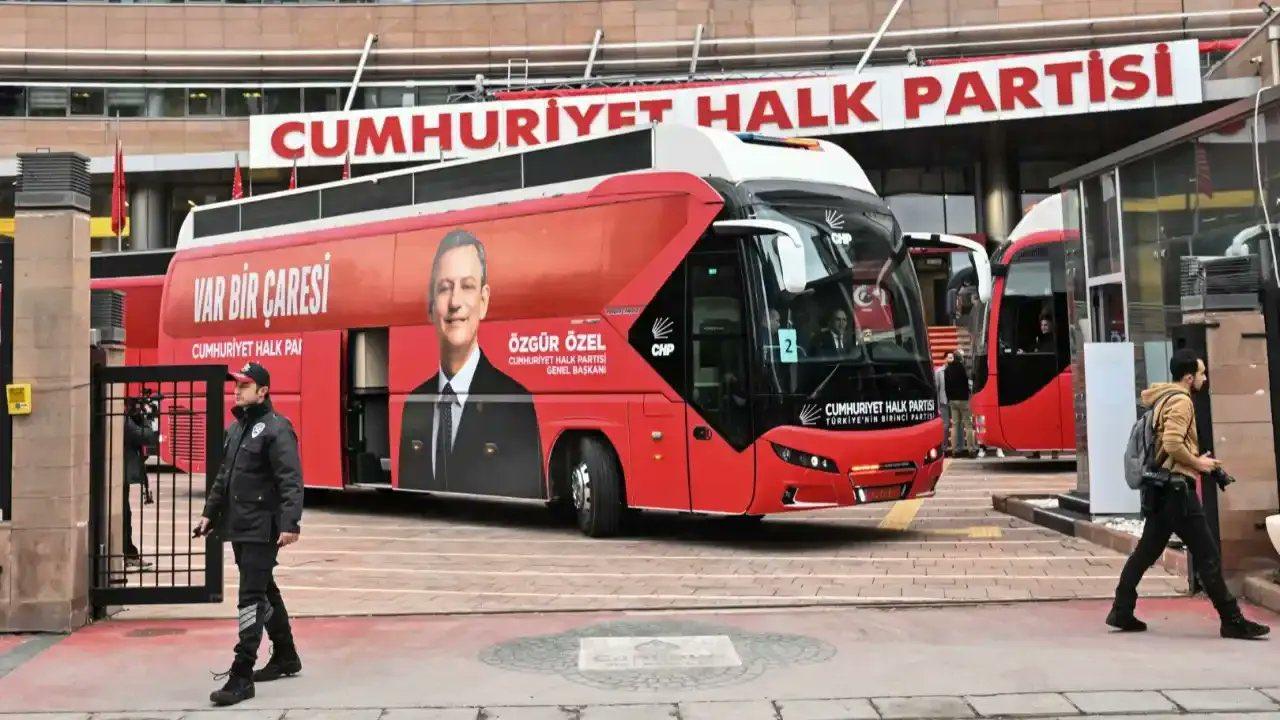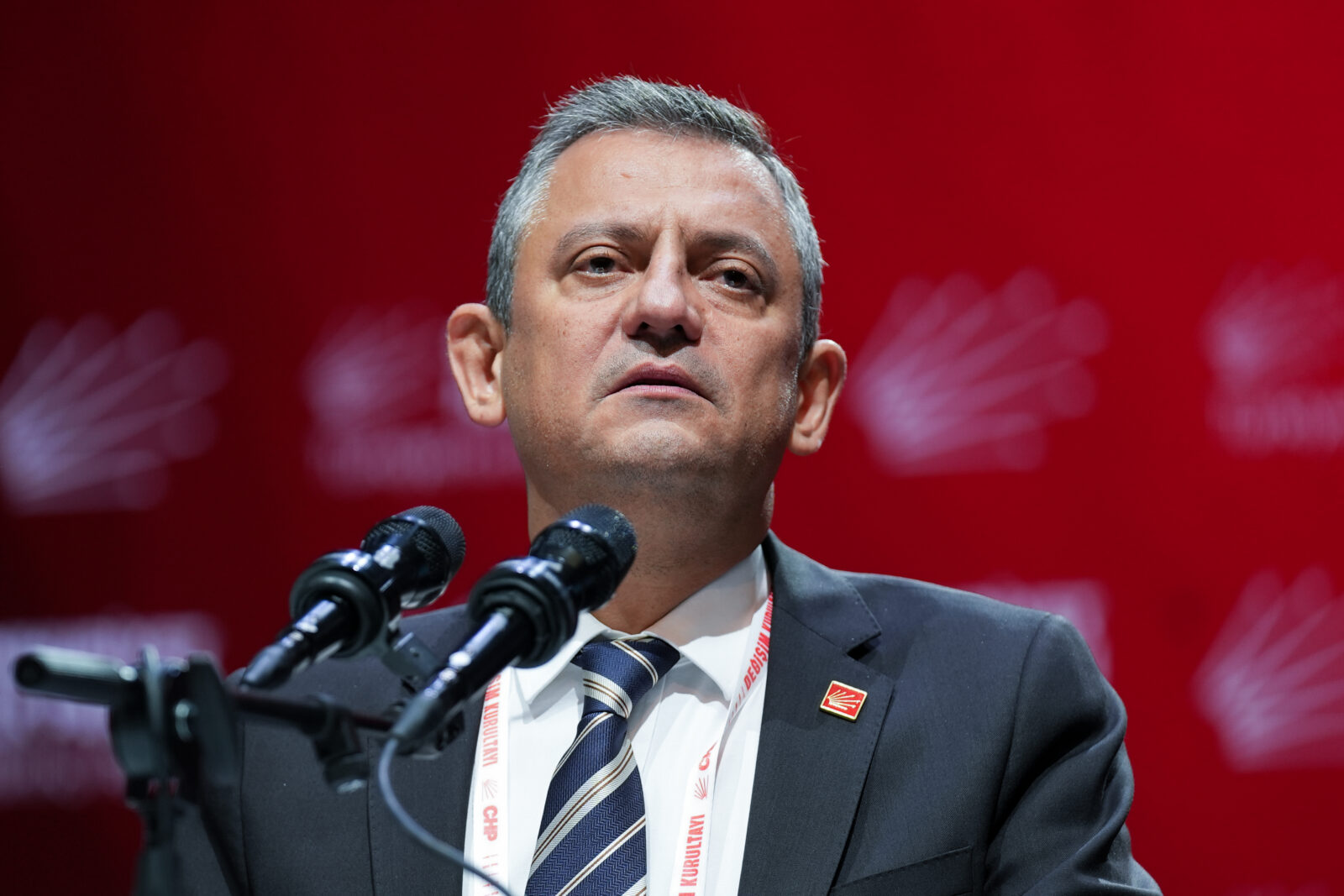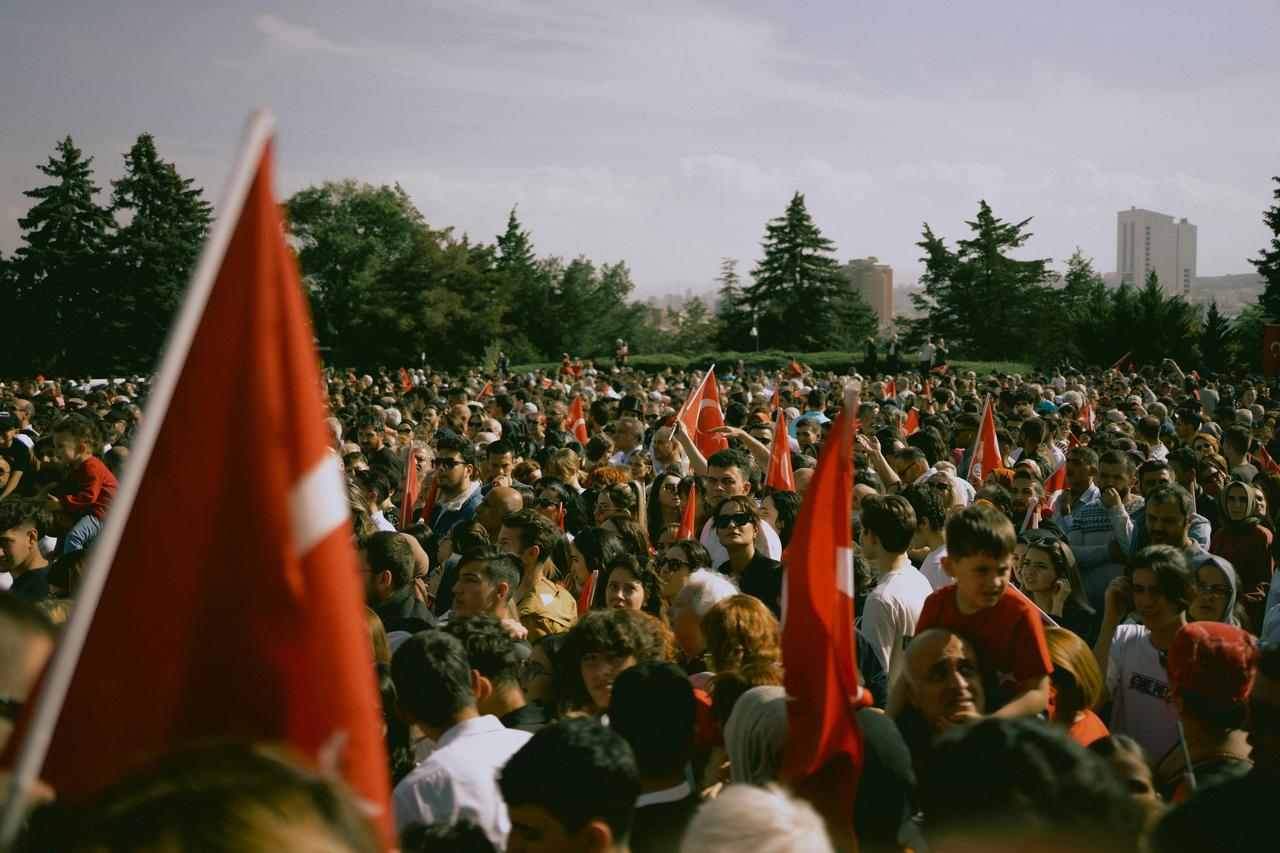
On April 23, the Ankara Governorate announced a protest ban. However, on Wednesday, several opposition lawmakers defied the order and tried to enter the Ankara Courthouse area by party bus, during which a police officer issuing a "stop" warning was nearly run over.
The driver of the vehicle received a house arrest sentence. The rhetoric in the Republican People's Party (CHP) deputy's defense was familiar: "We will not bow to lawlessness. We will defend justice and democracy to the end."
The following week, the main opposition party attempted to maintain public interest with a rally in Yozgat, initiating a new campaign with a new slogan.
It is known that the CHP is increasingly relying on public rallies, confrontational protest actions, and legal defiance as political strategies.
This appears to be largely a reaction to two pressing dynamics.
First, Istanbul’s municipal administration, where the CHP controls both the metropolitan municipality and 56 district municipalities, is facing substantial corruption allegations. These are not superficial claims that can be dismissed or buried.
As public attention gradually shifts from intense political polarization and legal proceedings to other lines of life, the resistance to these claims is expected to become less visible. In anticipation of this, the CHP appears to be adopting a strategy of sustained tension, challenging government authority and leveraging clashes with law enforcement to deflect from these pressures.
Secondly, Türkiye is undergoing a transformative political shift with the rise of what is being termed a “post-terror politics” period. There’s growing public support, particularly among Kurdish voters, including those historically aligned with the leftist Equality and Democracy Party (DEM Party), for a political environment untainted by associations with terrorism.
Surveys show great support of Kurdish voters for the idea of a “terror-free” political process, and they believe it can succeed. The CHP, however, has been hesitant to embrace this shift with the same clarity as other parties.
Video: Moment CHP driver steers bus toward police on April 23, 2025, Ankara, Türkiye. (Video via TRT Haber YouTube)
Nebi Mis, general coordinator of the pro-government think tank SETA, offers insight into this dynamic. "Content is deliberately created for foreign media to fuel international criticism of Türkiye," he explained.
“This strategy creates a foundation for the narrative that 'investors will avoid Türkiye.' Subsequently, developments in foreign exchange rates and stock market fluctuations are framed to suggest that negative economic outcomes are directly caused by government actions and that without investigations, these consequences would not have occurred."
"Through this framing, judicial proceedings are deliberately removed from their proper context as matters for the judiciary and instead forced into a simplified government-opposition equation,” he added.

Recent opinion polling data demonstrates that support for the ongoing political normalization process—colloquially referred to as the "terror-free Türkiye" framework—has steadily increased from 46% to 62%. This trend is not only broad-based but deeply felt, particularly among Kurdish voters.
Crucially, the DEM Party is being redefined in the public eye. It is gradually shedding the perception of being tied to armed political actors and moving toward a more independent and legitimate position in Turkish politics. This transformation was largely prompted by years of government efforts to marginalize the party using all state apparatus, which pushed DEM to opt for this new direction.
As this transition takes place, it undermines the CHP's long-standing reliance on its share of votes among the DEM Party's voter base, suggesting that Türkiye's political coalitions could be reshaped in the near future.
According to Mis, "The accumulated long-term anti-government sentiment and opposition energy is being strategically consolidated under the banner of 'reaction to the Imamoglu investigations.' This consolidation serves as an instrument to manage the ongoing factionalism and internal power struggles within the CHP, particularly regarding contentious issues such as the leadership crisis, party congress discussions, and related internal political matters."
One of the other underlying factors in the CHP's recent combative stance may be concern over losing influence on the Kurdish political bloc. With the DEM Party evolving into a more autonomous political actor, its need for CHP alignment is diminishing. The new landscape opens the possibility for DEM to act independently, field its own presidential candidate, or even consider alignment with the ruling coalition if conditions allow.

The absence of groups affiliated with the DEM Party from the protests following Imamoglu's arrest was met with criticism on social media by CHP voters. The nationalist, or "Kemalist," faction within the CHP stated that this was to their benefit in terms of the image of the protests.
This shift has triggered unease within the party. Political analysts suggest that part of the CHP's confrontational rhetoric and mobilization efforts—particularly among its urban middle-class base—are rooted in a desire to retain influence over Kurdish-affiliated voter blocs.
Despite its confrontational stance, the CHP is also facing increasing criticism among conservatives for its lack of constructive governance. The opposition party has not demonstrated a comparable agenda on economic, social, or urban development issues.
In major municipalities like Istanbul, governed by the CHP, the party is often criticized for focusing more on political messaging than on delivering tangible services and is perceived as not having any comparable agenda on economic, social, or urban development issues. This perception is damaging, particularly when the electorate is seeking solutions to deep-seated problems in education, healthcare, and social welfare.
Public rallies held by the CHP have sometimes drawn significant numbers, such as a recent event focused on pensioners, but these are often overshadowed by larger, more confrontational gatherings involving radical groups. This juxtaposition has raised concerns that the CHP is being pulled away from rational policy debates toward a politics of perpetual confrontation.
Public rallies held by the party have sometimes drawn significant numbers, such as a recent event focused on farmers, but these are often overshadowed by other topics on the agenda rapidly, as government voters raise concerns that the CHP is being pulled away from rational policy debates toward a politics of perpetual confrontation.
Analysts argue that CHP's current trajectory caters more to fringe demands for escalation than to the practical expectations of its rational voter appeal. The risk is that, while the party may generate short-term enthusiasm through provocative messaging, it could alienate the broader electorate in the long run.
Looking ahead, the CHP appears to be at a strategic crossroads. It can continue to escalate its confrontational approach, getting marginalized increasingly and perceived as unpredictable by some elements of civil society. Or it can recalibrate, focusing instead on policy-driven opposition rooted in voter demands for practical solutions.
The main opposition party considers itself too large to be marginalized like the DEM Party. However, Erdogan may prove this assumption incorrect. Hence, the CHP needs to remain prepared for this possibility at all times.